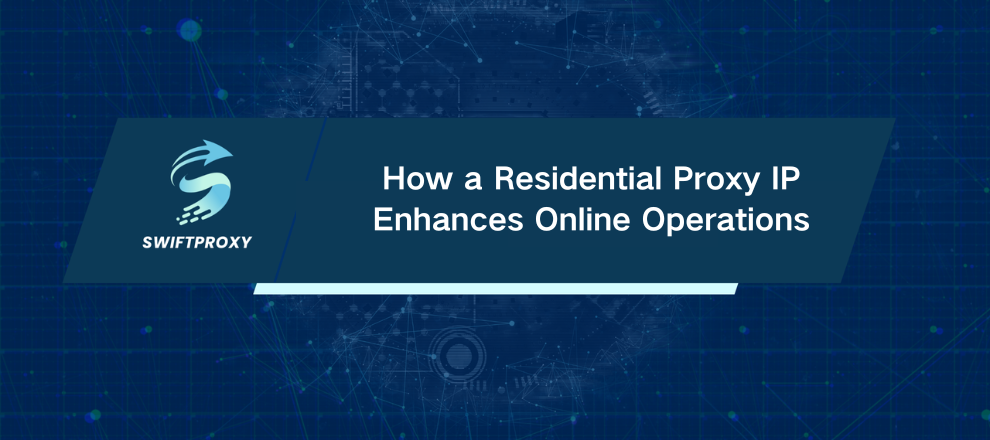How a Residential Proxy IP Enhances Online Operations

Imaging that IP address isn't just a string of numbers—it's your digital passport. Now, what if that passport was real, issued by a genuine household connection? That's exactly what residential proxy IPs are. And in fields like cross-border e-commerce, automated marketing, and data scraping, they're the secret weapon professionals swear by to dodge blocks and keep operations smooth.
This isn't just tech talk. Residential proxies are reshaping how businesses handle sensitive tasks online. Let me walk you through why they matter, who needs them, and how to pick the right one for your work.
What Exactly Is Residential Proxy IP
Residential proxy IPs come straight from real ISPs—just like the ones you have at home. When you connect through one, websites see you as an actual user, not a bot or a server. That makes your activity blend in, flying under the radar.
Contrast this with datacenter IPs, which come from server farms. These are easier to spot and block. Residential IPs? They're the stealth mode of internet traffic.
Why You Should Care About Residential Proxies
1.Cross-Border E-Commerce
Managing multiple seller accounts on Amazon, eBay, or TikTok Shop? One wrong IP, and platforms flag you for suspicious multi-account activity. Result: account bans. Residential proxies give each account a unique, real-world IP address. That's like giving every account its own home address—no sharing, no suspicion. Many international sellers pair these proxies with browser fingerprinting tools for extra security.
Solution: Use a dedicated residential proxy for each account to isolate sessions and reduce detection risk. Combine it with browser fingerprint management for the best defense.
2. Data Scraping and Crawling
Websites guard their data fiercely. Datacenter IPs get flagged and banned almost immediately. Residential proxies act like genuine users, letting you scrape and crawl without tripping alarms. If your project needs scale and consistency, residential proxies are the way to go.
Solution: Rotate residential proxies regularly and mimic human browsing patterns to maximize scraping success and minimize blocks.
3. Overseas Ad Testing and Social Campaigns
Advertising platforms like Facebook and Google are picky. They check where you log in from and how you behave. Using residential proxies based in your target markets makes you look like a local user. This boosts trust and helps your campaigns run uninterrupted.
Solution: Choose residential proxies with geo-targeting features to simulate user locations in your key markets.
Picking the Right Residential Proxy Provider
Three must-haves:
Authenticity: IPs must be ISP-assigned, not faked or recycled.
Speed and Stability: Your operations won't wait. Choose providers that guarantee uptime and fast connections.
Geo-Diversity and Control: Being able to select proxies by country, city, or region is a game changer.
For instance, providers like IPFLY offer both static and rotating residential proxies with broad geographic coverage and robust anonymity. Their easy dashboard and API integration let you set up quickly, even if you're new to proxies.
Quick Setup:
Pick your region and proxy type on the dashboard.
Grab your connection details—port, username, password.
Plug them into your browser or tool. Done.
Many providers also include step-by-step tutorials and responsive tech support.
Final Thoughts
Residential proxies address the biggest challenges of traditional IPs such as blocks, instability, and shared usage. When managing multiple accounts, scraping data, or running international campaigns, investing in reliable residential proxies becomes essential. They offer a shortcut to safer, smoother, and more successful digital operations.

















































